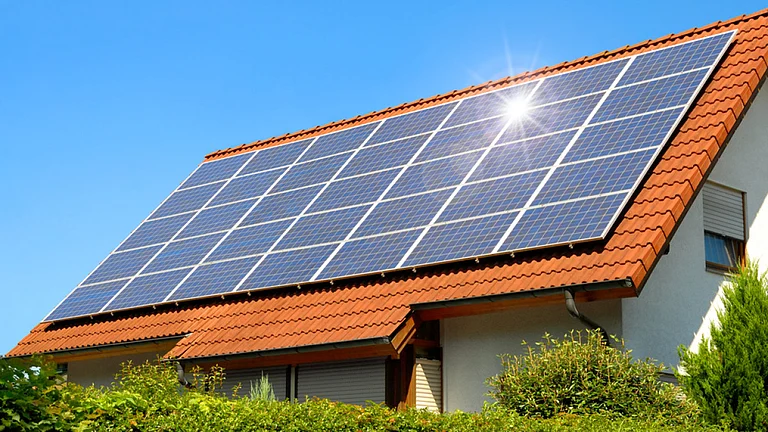Over 3 lakh rooftop solar loan applications rejected by public sector banks.
Low CIBIL scores, incomplete documents are key reasons behind rejections.
Government targets 10 million solar rooftops by 2026-27 despite setbacks.
Why PSBs Are Rejecting Thousands of Loan Applications for Rooftop Solar Installations
High rejection rate clouds India’s rooftop solar push under PM Surya Ghar scheme
Public-sector banks (PSBs) have rejected 305,667 applications under the PM Surya Ghar: Muft Bijli Yojana out of 803,515 applications received since its launch in February 2024 until August 2025. This translates into a rejection rate of 38.03%, a senior government official told Business Standard.
The scheme was launched in February 2024 with a total outlay of ₹75,021 crore to support rooftop solar installations and provide up to 300 units of free electricity. So far, PSBs have sanctioned ₹8,417.5 crore along with sanctioning 447,736 applications.
Other institutions apart from PSBs that sanction loans under the scheme include private banks, regional rural banks and non-banking financial companies.
Reason Behind Rejection
A senior public sector banker told Business Standard that one of the primary reasons behind higher rejection rate is the Cibil score. Applicants must have a minimum Cibil score of 680 or above. Some of the applicants who have taken multiple loans, have failed to fully repay them, this leads to a drop in their Cibil score and thereby leads to rejection of their application.
Another prominent reason reported by Business Standard includes failure of vendor to communicate properly with borrowers. As the scheme requires proper communication and promotion, some rejections happen due to incomplete or incorrect documentation. However, work is in progress to improve the lag through ongoing communication and awareness drives.
What is CIBIL Score?
According to TransUnion CIBIL, an Indian information and insights company, CIBIL score is a three-digit numeric summary of your credit history.
The credit history contained in the CIBIL Report, also referred to as the Credit Information Report (CIR), is used to calculate the score. A CIR is a person's credit payment history over time, across all loan kinds and credit organisations. Your savings, investments, and fixed deposits are not included in a CIR.
PM Surya Ghar Yojana—Progress so far
The PM Surya Ghar: Muft Bijli Yojana aims to support domestic manufacturing by deployment of solar modules and cells produced in India.
According to a news release by Ministry of New and Renewable Energy, Chandigarh and Daman & Diu have achieved 100% of their government building rooftop solar targets, “leading the nation in clean energy adoption”.
Other significant contributors to the overall figures include states such as Rajasthan, Maharashtra, Gujarat and Tamil Nadu. “The government is actively monitoring the progress across all states to ensure the smooth and timely execution of the scheme, with the goal of reaching 10 million households by 2026-27,” the news releases added.


